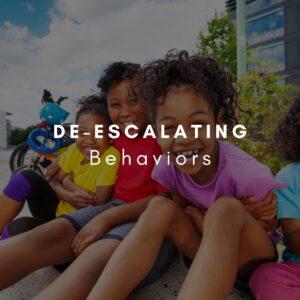Positive Reinforcements
Applied Behavior Analysis (ABA) therapy stands as a beacon of hope and transformation for individuals with autism spectrum disorder (ASD) and other developmental conditions. Rooted in the science of learning and behavior, ABA uses proven techniques to enhance social skills, communication, and learning through the power of positive reinforcements. In other words, we like to have fun with our clients!
Personalized Approach
The magic of ABA therapy lies in its personalized touch. Each program is custom-tailored to the individual’s unique needs and starting point, ensuring that every step taken is meaningful, personalized and impactful. Meeting our clients where they are is a key-component in what makes ABA therapy so affective and impactful. This personalized approach leads to remarkable improvements, enriching everyday experiences and fostering personal growth and development in our clients.
Continuous Advancements
A hallmark of ABA therapy is its commitment to progress. By tracking data and outcomes, therapists can fine-tune teaching methods to maximize success. This evidence-based method ensures continuous advancements using a play-based process that makes every achievement a celebrated milestone.
Self-Reliance & Autonomy
ABA therapy is a gateway to independence. It breaks down complex tasks into simple, manageable steps, allowing individuals to learn at their own pace. This not only builds essential skills but also boosts confidence, paving the way for greater self-reliance and autonomy.
Training & Support for Lasting Change
It is not just our clients that benefit from the positive impacts of ABA, families do as well. With training and support from therapists, parents and caregivers are empowered to apply effective strategies at home, creating a consistent, nurturing environment that promotes lasting change.
Unlocks Potential
In essence, ABA therapy offers an inspiring path to unlocking potential. It transforms lives by providing the support needed to thrive, fostering independence, and enhancing the overall quality of life for individuals and their families, all while playing in a positive and supportive environment.
References:
Autism Speaks. “Applied Behavior Analysis (ABA).” *Autism Speaks*, www.autismspeaks.org/applied-behavior-analysis-aba-0. Accessed 9 June 2024.
Behavior Analyst Certification Board. “Applied Behavior Analysis Treatment of Autism Spectrum Disorder: Practice Guidelines for Healthcare Funders and Managers.” *Behavior Analyst Certification Board*, 2014, www.bacb.com/wp-content/uploads/2020/05/ABA_Guidelines_for_ASD.pdf. Accessed 9 June 2024.
Leaf, Ronald, et al. “The Growing Evidence Base for the Utility of Applied Behavior Analysis in Addressing Autism Spectrum Disorders.” *Research in Autism Spectrum Disorders*, vol. 3, no. 3, 2009, pp. 663-684. *ScienceDirect*, doi:10.1016/j.rasd.2008.11.002. Accessed 9 June 2024.
Schreibman, Laura, et al. “Naturalistic Developmental Behavioral Interventions: Empirically Validated Treatments for Autism Spectrum Disorder.” *Journal of Autism and Developmental Disorders*, vol. 45, no. 8, 2015, pp. 2411-2428. *SpringerLink*, doi:10.1007/s10803-015-2407-8. Accessed 9 June 2024.
Smith, Tristram. “Behavioral Interventions for Autism Spectrum Disorder.” *Pediatric Clinics of North America*, vol. 61, no. 4, 2014, pp. 821-836. *Elsevier*, doi:10.1016/j.pcl.2014.05.009. Accessed 9 June 2024.
-
How to Set Realistic Goals as a Family in ABA Therapy
Setting realistic goals in ABA therapy is a collaborative and dynamic process that combines professional expertise with family insight. By focusing on the child’s developmental stage, prioritizing meaningful and measurable goals, and maintaining flexibility, families can create a roadmap for success. With patience, persistence, and partnership, these goals become steppingstones toward greater independence, improved quality…
-
Teaching Emotional Regulation with ABA Tools
Emotional regulation involves the ability to monitor, evaluate, and modify emotional responses to meet the demands of a given situation. It encompasses recognizing emotions, understanding their causes, and implementing strategies to manage them. For individuals with ASD, emotional regulation difficulties may manifest as heightened reactivity, impulsivity, or meltdowns when faced with stressors. These challenges are…





